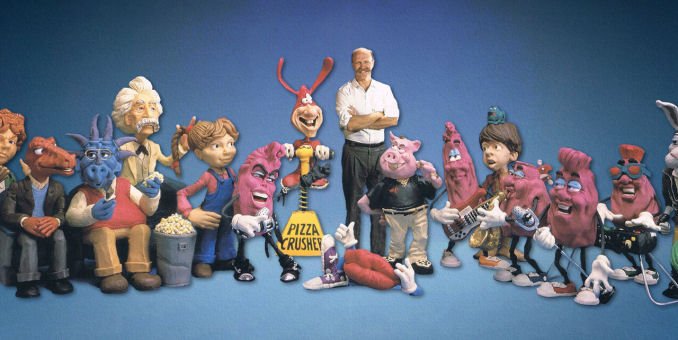If you were live in the 1980s, you are almost certainly aware of the work of animator Will Vinton, even if you didn’t know his name. As a pioneer of a stop-motion animation technique involving clay figures which he nicknamed “claymation,” Vinton created a series of ads for the California Raisin Advisory Board featuring a bunch of soul singing raisins that almost overnight became a part of the pop cultural zeitgeist, spawning albums, TV specials, a traditional hand-drawn Saturday morning animated series, plush toys and more. Somehow, though Vinton was never able to leverage that burst of success into a more sustained career.
Director Marq Evans’ documentary Claydream takes a look at the rise and eventual fall of Vinton’s career. Started in cooperation with Vinton before the animator passed away in 2018, the film not only lionizes the creator but shines a light on some of his failings to create a fairly well-rounded portrait of the man created through archival footage as well as new interviews with Vinton.
Evans frames his story using video deposition footage from the trial that resulted when Nike founder Phil Knight took over Vinton’s studio and forced Vinton out. It is a device that foretells the sad end to Vinton’s story while also serving as a way to act as a guide through his career. We start with the idealistic young animator who teamed with his friend Bob Gardiner to create a number of animated shorts that would lead to an Academy Award nomination and the attention of Hollywood. In time, the California Raisins project happened and then exploded, as did a similar ad campaign for Pizza Hut featuring a character called “The Noid.” But other projects, often with years of development put into them, did not materialize at all.
To be honest, although once heralded as the “next Walt Disney,” Vinton’s own ambitions towards that goal may have clouded his judgement at times. This would only compound what seems to be just a streak of bad luck. He designed his only feature length project, The Adventures Of Mark Twain, as more adult fare, but its distributors gave it the standard promotion used for kiddie fare. He also failed to think to negotiate for a percentage of the ancillary rights to the California Raisins, an oversight that cost him millions. He also passed on an offer to buyout his studio that came from no less than PIXAR.
As usual, when trying to compress four decades of someone’s life and career down into roughly ninety minutes, there will be seeming things that go under-examined. Certain parts of Vinton’s home life and some unrealized projects, such as a Disneyland-like theme park, get elided. But in total, though Claydream comes off as more rounded picture of its subject than one is used to seeing in documentary biographies these days.





